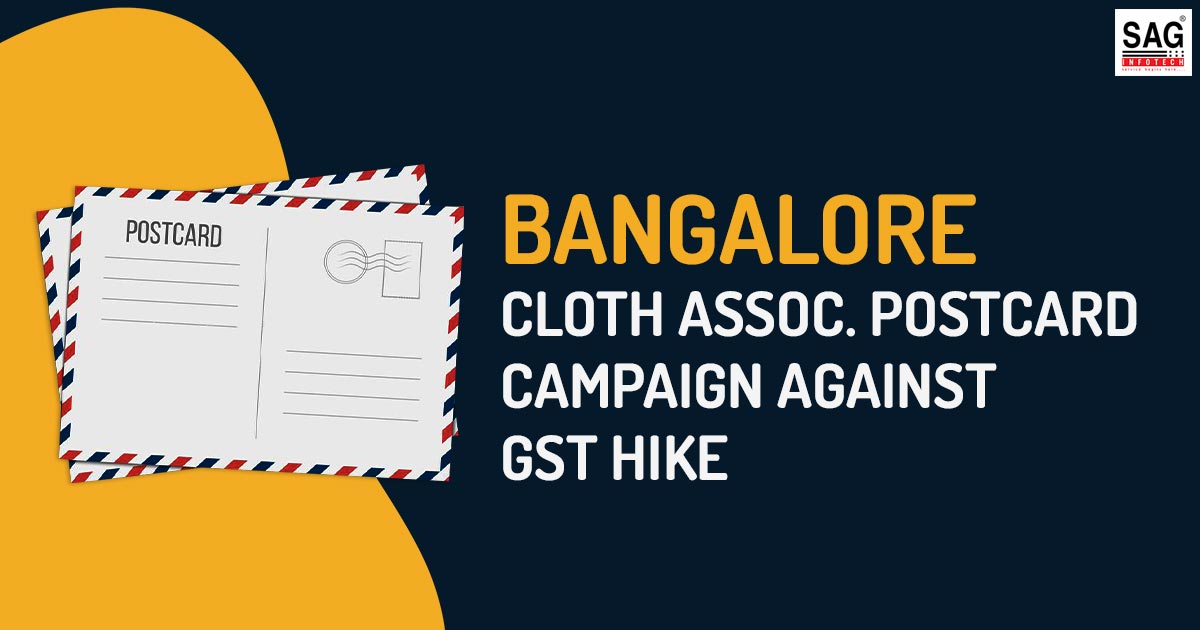
Bangalore Wholesale Cloth Merchant Association asked the central government to refuse the idea of a GST surge towards the garments and textile industries from 5% to 12%. The government from January 2022 has surged the GST on finished goods like garments, textiles, and footwear from 5 to 12 per cent.
The traders formed an association and decided to furnish postcards to PMO (Prime Minister Office) on the day to day basis through the shops here in Bengaluru with respect to the concern of GST rise. State Karnataka alone furnishes 3000 cards daily. From every outlet, a min of 5 cards has been sent on a daily basis.
A letter has been sent to the Union Minister of Finance Nirmala Sitharaman, president of the association, saying that it is a request to carry on the same GST with previous rates. From the recommendations for GST rise at the 45th GST Council Meeting, the textile owners do not get satisfied as it is a straight surge with 140%. The government always used to promote roti, Kapada and Makan that undergoes basic necessities for life with minimal cost so that every person in India along with those who come under BPL would avail the same basic needs.
From the previous happenings, our government provides the subsidiary on the rates and builds the same free from the taxes so that the same counts under economical for all and people afford it the majority of the garments and the textiles counts in exceeding bracket.
And upon that, it is horrible to know that our government is surging the GST rate on the textile along with the garments from 5 to 12 per cent.
The same concern shall affect the industry whose outcome will be the closedown of shops and factories which leads to the unemployment of thousands of people and the revenue loss towards exchequer. Nearly 85% of textile trading shops and manufacturers undergo in the medium and small sector and are lower from Rs 40 lakhs turnover per annum and thus do not come beneath the GST framework. However, the community furnishes GST on buyings and holds a contribution to the government exchequer. Small traders and industries pay the GST of 5%.
If the GST gets rises then there our small and medium traders shall be loaded with a huge burden which might get passed to the consumers and may cause inflation or the situation makes it more difficult to compete with the large stores in the sector and lastly shut down their businesses. There is a fear of unemployment for the people who are working in textile shops as shop owners were not able to bear the GST surge.
Read Also: Cloth Assoc. Submits a Memorandum to Officer for GST Rates & E-Way Bill
GST surge will produce a negative effect and the same effect shall lead the small and medium owners to close their shops with no employment. This loss in job shall negatively influence the other industry trades such as the hotel industry, travel, cargo, packaging, and transportation. We are scared that the failure of employment among illiterates, uneducated, handicapped persons, who work in small and medium businesses lead to jobless starvation, suicide, arson, lotting, etc.








